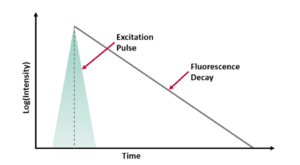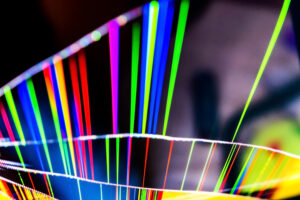Welcome to our Customer Spotlight series where we catch up with our customers, learn about their research and find out how Edinburgh Instruments has helped with their work.
In this edition, we met with three researchers, Michele Duarte Tonet, Dr. Edward B. Ogugu and Dr. Abhishek Kumar Gupta from the University of St Andrews. They are all part of the Organic Semiconductor Optoelectronics group, led by Professor Ifor Samuel and Professor Graham Turnbull. The group specialises in organic optoelectronic materials for potential use in several applications including flexible screens and organic solar cells. Across different projects, they leverage advanced photophysical characterisation techniques using Edinburgh Instruments’ world class photoluminescence spectroscopy solutions.
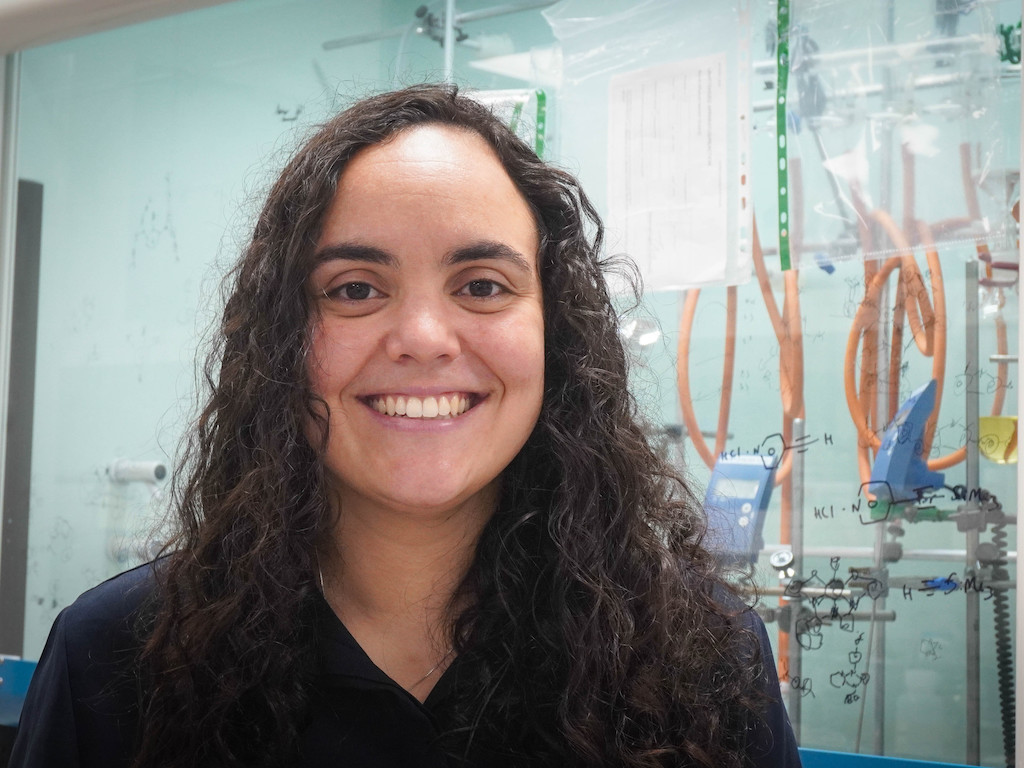
Michele is studying for a PhD with the group and is co-supervised by Professor Turnbull and Professor Eli Zysman-Colman (Zysman-Colman Group, University of St Andrews). In her research, she uses fluorescence sensing techniques to detect explosives, a critical application for security and safety. Her work focuses on how fluorophores interact with explosive molecules, causing changes in their emission spectra.
“The techniques I apply could pave the way for instruments that use organic fluorophores to deliver real-time responses when exposed to explosive vapors,” she explains. “This approach may even offer selectivity toward specific compounds.”
To conduct these experiments, Michele uses our FS5 and FLS980 fluorescence spectrometers performing both steady-state and time-resolved measurements, including time correlated single photon counting (TCSPC) and multichannel scaling (MCS). She highlights two features of these instruments as particularly valuable:
Michele’s experience with our team reflects our commitment to partnership: “Whenever we have questions or need replacements, the team at Edinburgh Instruments is responsive and helpful. Overall, our experience has been consistently positive.”
Edinburgh Instruments proudly co-sponsors Michele’s PhD research.
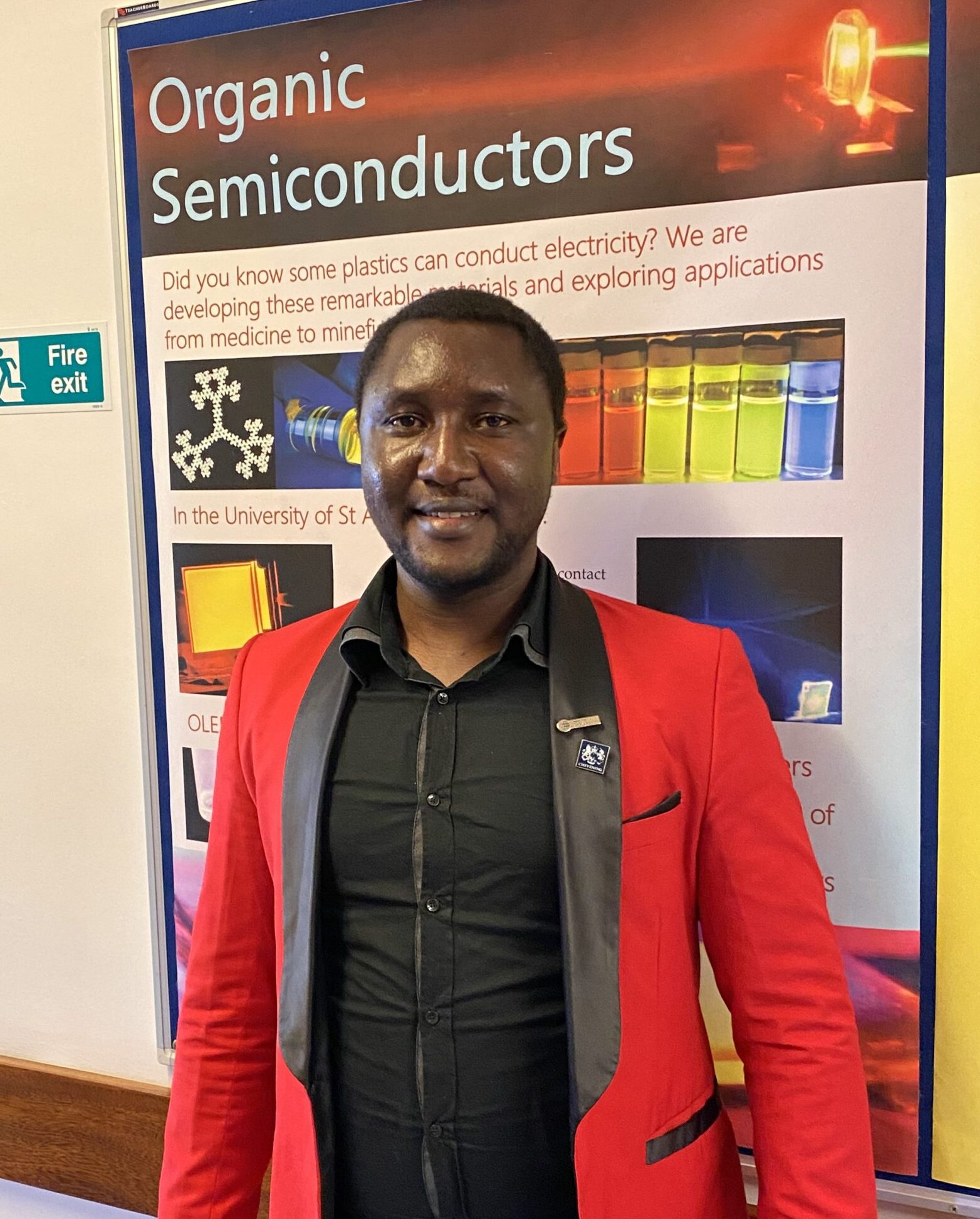
Dr. Edward B. Ogugu, Research Fellow, works with microporous polymers, materials that feature intrinsic microporosity due to their molecular structure. Synthesised by collaborators at the Universities of Edinburgh and Glasgow, these polymers have enormous potential in advanced device fabrication.
“I conduct photophysical characterisation of these polymers and, based on their properties, apply them as chemical sensors, in optically pumped organic lasers, and in organic photovoltaics,” Dr. Ogugu explains.
These functional microporous polymers could revolutionise organic electronics, creating new opportunities for organic photovoltaics, OLEDs, organic lasers, and chemical sensors.
To achieve these breakthroughs, Dr. Ogugu relies on Edinburgh Instruments’ FS5 and FLS980 spectrometers, performing photoluminescence measurements TCSPC in both air and vacuum environments. “All the features [of the instruments] I’ve been using are crucial, as they allow me to fully understand the photophysics of microporous polymers before applying them in devices,” he adds.
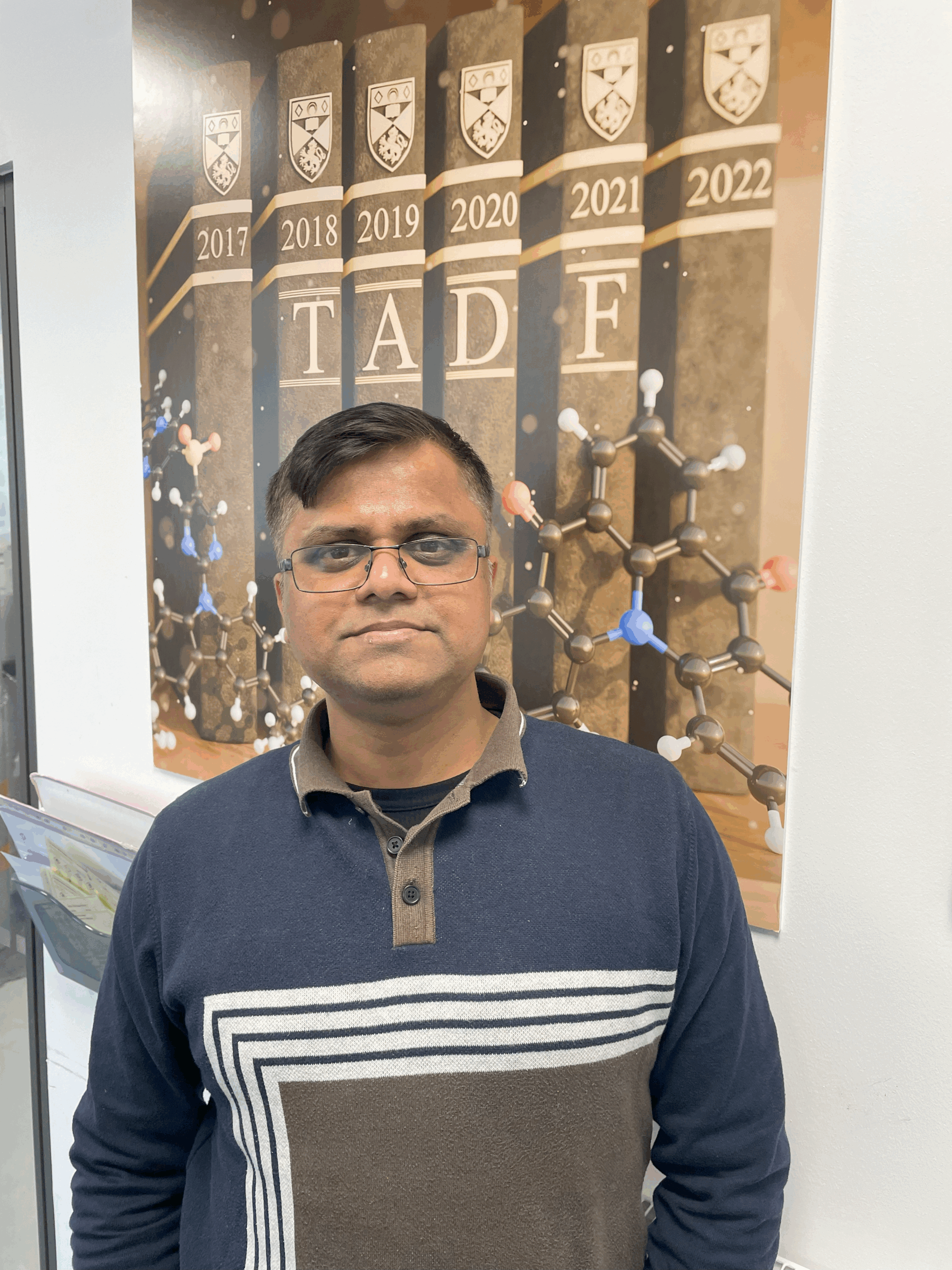
Dr. Abhishek Kumar Gupta, Newton Research Fellow at the University of St Andrews, is dedicated to developing highly efficient OLED materials, the backbone of next-generation display and lighting technologies. Before OLEDs can be fabricated, Dr. Gupta performs in-depth photophysical studies, which lay the foundation for device optimisation.
“My research impacts the optoelectronics field by enabling highly efficient OLEDs for display and lighting applications,” says Dr. Gupta. “These OLEDs can also be used as light sources for medical devices and visible light communication systems.”
For this work, Dr. Gupta primarily uses the FLS980 and FS5 systems, employing techniques such as TCSPC, MCS, and PL spectral measurements under vacuum and cryogenic conditions. “All features are very useful, but I particularly value the ability to measure PL decay and gated emission at 77K,” he notes.
He also highlights the support he has received from the team: “The technical staff have sound knowledge about the instruments and provide excellent support.”
Supporting Our Customers
From security applications to organic electronics and OLEDs, one factor consistently drives success for researchers: the precision and reliability of Edinburgh Instruments’ technology. Our FS5 and FLS series spectrometers empower scientists to conduct advanced photophysical characterisations, unlocking new possibilities in device development, sensing, and materials science.
At Edinburgh Instruments, we take pride in our renowned customer support. Whether it’s expert guidance from our applications team on instrument capabilities or dependable assistance from our operations team to ensure long-term performance, we’re committed to helping researchers get the most from their investment.
As these projects demonstrate, Edinburgh Instruments doesn’t just support research—we accelerate innovation with real-world impact.

